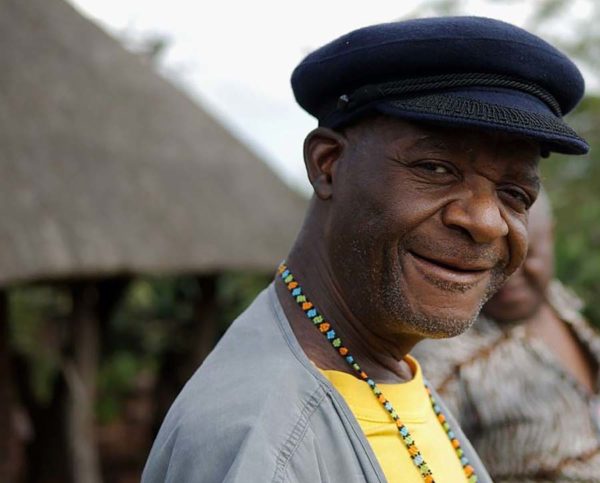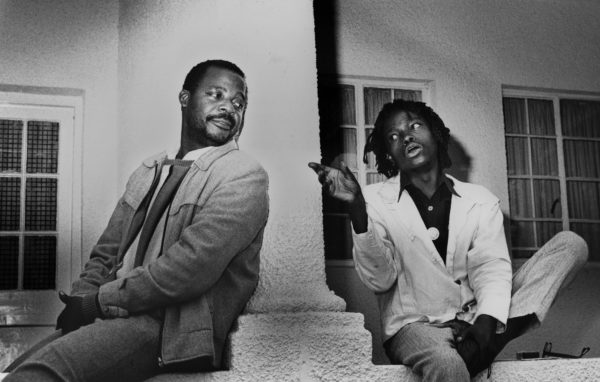
It is no exaggeration to say that Charles Mungoshi, who died on 16 February in Harare, aged 71, was one of the most important writers both in English and in a local language—in this case, Shona—to come out of Africa. Less flamboyant than his namesake Charles ‘Dambudzo’ Marechera, Mungoshi was a prose master of understated power and refinement, elaborately precise, richly textured, densely allusive, revealing a mind minutely curious and a man of prodigious but easy learning. His body of work is united by a singular voice and style. His terrain is the quotidian, and his fiction is able to examine the minutiae and the mundane elements in the underbelly of the Zimbabwean society. Over his career, his genre-bending narratives were rewarded with regional and international recognition, including from the Commonwealth Writers’ Prize, the International PEN, and the Noma Award, and a shortlisting for the inaugural Caine Prize in 2000.
In his survey of Black writing in English from Zimbabwe, T. O. McLoughlin says of Mungoshi that he “is Zimbabwe’s most substantial writer.” His easy technical virtuosity as displayed in his natural use of diction and of the rhythms of everyday speech made him something of a writer’s writer. In Memory Chirere’s estimation, between 1970 and 2000, a period of 30 years, Mungoshi made an average of one major publication every one and a half years.
Mungoshi’s quiet influence on Zimbabwean literature showed not only in his writing but also in his work as an editor, translator, and publisher, which is why it is ironic that his ambitious editing and publishing endeavors are now peripheral to his overall reputation.
Zimbabwe, the country that re-emerged from the colonial era, had no access to books that offered African history or literature. Between 1965 and 1980, Rhodesia was a pariah state after its Unilateral Declaration of Independence, which meant that the country’s mostly black population was cut off from a rapidly decolonizing continent. Meanwhile, access was denied them by the White-run publishing presses in the country. During this period of political isolation, only eleven books of fiction were published by Black Zimbabwean writers, two of them by Mungoshi himself.
“The publishing houses we had in Rhodesia at the time did not think a black man could write anything in English that was worth selling,” Mungoshi said in an interview. “If they published anything in English at all, it had to be written by a white man.”
For this reason he sent his first book in English, Coming of the Dry Season, to Kenya, and it was published in 1972. But in 1974, the book was banned in Rhodesia on the grounds that it was “designed to cause hatred and ill feeling in African minds against Europeans and that the circulation of this book was likely to harm relations between the white and black sections of the public.”

In 1981, a year after independence, Mungoshi co-founded Zimbabwe Publishing House, the first major local publishing concern in the country. His two books, Waiting for the Rain and Coming of the Dry Season, previously published in the early ’70s, became the first imprints for the company in 1981. Through the publishing press, he introduced and mentored a new generation of Zimbabwean writers, including Chenjerai Hove, Kristina Rungano, Freedom T.V. Nyamubaya, Bertha Msora, and Titus Moetsabi.
As one of the first Black publishers in independent Zimbabwe, Mungoshi saw his role as that of a national curator developing a reading list for his countrymen and women. Zimbabwe Publishing House licensed books previously banned in Rhodesia by authors such as Nelson Mandela, Ngugi wa Thiong’o, Ezekiel Mphahlele, Peter Abrahams, Pepetela, and Ama Ata Aidoo, among others.
In 1983, Mungoshi was part of the organizing team for the first Zimbabwe International Book Fair, alongside the journalists David Martin and Phyllis Johnson and the publisher Hans Zell. The event went on to become the Holy Grail of African literary events. Over the years, visiting authors included Chinua Achebe, Cyprian Ekwensi, Kole Omotoso, Flora Nwapa, Ngugi wa Thiong’o, Micere Mugo, Ngugi wa Mirii, Jack Mapanje, Misheck Asare, Lewis Bernardo Honwana, Lewis Nkosi, Njabula Ndebele, and Nadine Gordimer, among many others.
In 1991, Coming of the Dry Season became the first book by a Black Zimbabwean author to be prescribed for secondary school English examinations. Prior to that, the Cambridge Examination system made Zimbabwean children learn only Chaucer, Shakespeare, D.H. Lawrence, and the English Romantics.
Mungoshi was the only author in Zimbabwe who successfully experimented with translations. He translated Ngugi’s A Grain of Wheat into Shona as Tsanga Yembeu. His love of the English-Shona duality brought innovation and sophistication to the Shona novel with Kunyarara Hakusi Kutaura influencing a generation of Shona writers such as Chirikure Chirikure, Ignatius Mabasa, Memory Chirere, and Tinashe Muchuri. “Stories I had read in English influenced my writing in English and Shona stories my Shona writing,” he said, “though the latter was also influenced by my English reading.”
In his last decade, Mungoshi suffered from a neurological condition, which prematurely stalled his writing career. The last of his eighteen books, Branching Streams Flow in the Dark, was released in 2013 by his family. The book—in which he interrogates mortality, sickness, decay, and concomitant philosophical fulminations—reportedly took him twenty years to write. But even without it, he had already done enough to earn his place in the pantheon of African literary greats.
About the Writer:

Tinashe Mushakavanhu is a writer from Zimbabwe. He read for a PhD in English at the University of Kent and is a co-founder of readingzimbabwe.com. The mapping project he co-created, “Home Means Nothing to Me,” was shortlisted for the 2018 Brittle Paper Award for Creative Nonfiction.









COMMENTS -
Reader Interactions